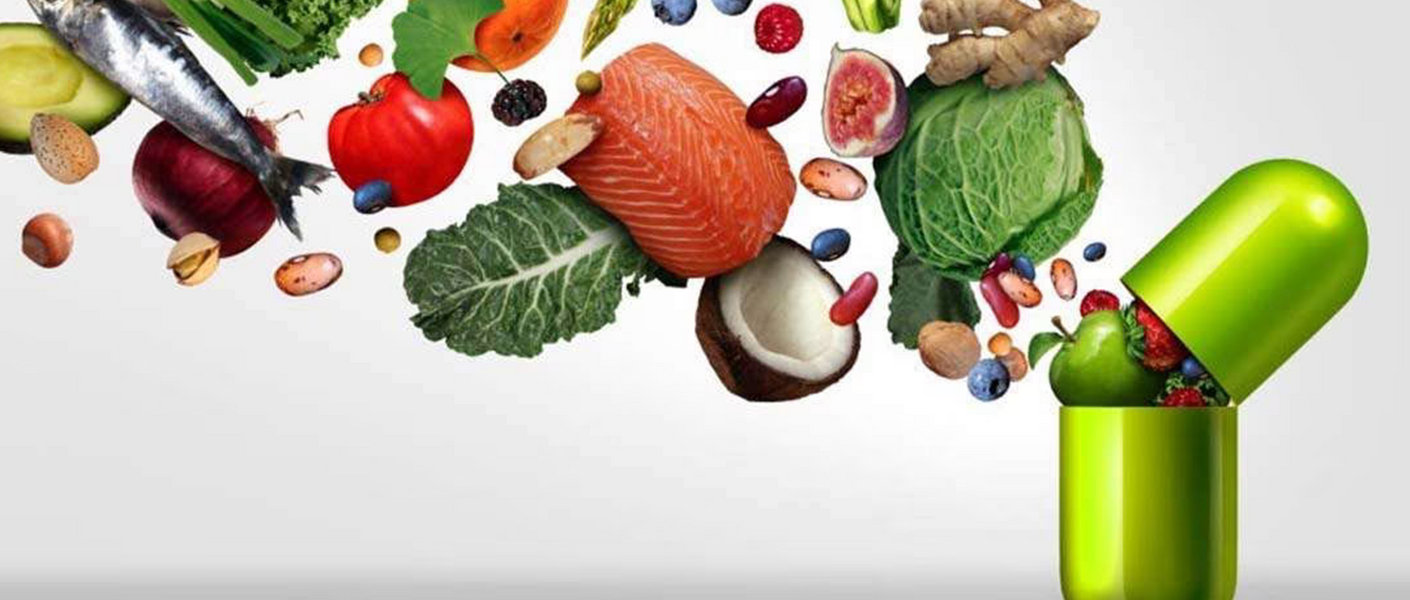
Hippocrates said nearly 2,500 years ago “Let food be thy medicine and medicine be thy food”. This notion is still true today and we are what we eat! This is hardly surprising since our bodies are a metabolic engine, a power house, with around a billion biochemical reactions occurring every second in each of our cells. That means many billions of trillions of reactions in our bodies in an average lifetime. The result is generation of trillions of different chemicals, changing constantly in quantity and quality. These vary from relatively simple compounds, such as the energy-rich adenosine triphosphate (ATP), to complex molecules such as our hormones. All these are produced ultimately from just six elements: Oxygen, hydrogen, nitrogen, carbon, calcium and phosphorus, which together comprise some 99% of our body’s chemical content. Another five elements make up about 0.85% of the remaining mass: sulphur, potassium, sodium, chlorine, and magnesium. All of these 11 are essential elements and the body obtains them from nature, that is our environment (soil, water) through our food (derived from plants and animals). So, ultimately, indeed we are what we eat!
In this series, we shall talk about a range of dietary and nutraceutical supplements that can support healthy living. A comment that is often made is – but we have everything in our diet! That is true, but these days the situation is not that simple, and our diets are exposed to undesirable influences. These are because of intensive farming, use of various chemicals in agriculture which can impact our lives despite the relevant legislature being tightened all the time. There is also our desire for cheap and fast food, changing lifestyles resulting in not having enough time for cooking healthy foods at home, let alone growing our own organic vegetables etc etc. All this means we need to complement our diet with supplements. We can divide the latter into two broad groups. First, there are dietary agents, supplements that are found in normal diet but for whatever reason we may not be getting enough of or simply could benefit from more of. A clear example is magnesium (the topic of our next bulletin). Other examples are vitamin C and resveratrol. Second, there are the nutraceutical agents, compounds that are found in nature but not common in our diets. These include propolis and artemisinin.
One difficulty with use of such supplements is the degree of evidence surrounding them. In turn, this is because, unlike clinical drugs, they will not have been subject to properly designed clinical trials. There are also prejudices in the field. Nevertheless, evidence can be assembled from information from meta analyses and individual studies with mechanistic insights. Everything we will recommend in these series will be evidence-based and where ever needed, reference(s) will be given to the original publications. In addition, we shall provide mechanistic insights to why a given supplement could be effective. Just to give an example. We know that the acid-base balance of the body is very important for healthy living. Indeed, the many biochemical reactions that go on unconsciously will be affected by the acidity of our tissues and their immediate environments. Heightened acidity is bad for us, so there may be a temptation to adopt an alkaline diet and consume some form of bicarbonate. However, classic physiologists would argue that the acidity of the human body is extremely stable, with various layers of control, and difficult to shift. Still, a study in Japan showed that an alkalinising dietary regime (based on at least 400 g of fruits and vegetables per day and no meat or dairy products) led to a significant drop in acidity detectable in urine.
There is one important proviso, however. For people taking medication for whatever condition, care must be exercised in taking supplements so undesirable clashes do not occur. This is especially important for cancer patients. One well known case is avoiding grapefruit and Seville oranges (including marmalade) whilst on chemotherapy since these interfere with certain enzymes (CYPs) that are the primary targets of the treatment.
Before delving into further, specific details, I should briefly introduce myself. I am a biomedical research scientist who trained at Imperial College London. My 50-year career in science at Imperial is divided into two roughly equal periods – neurobiology (which led to my first professorship in 1990) and cancer biology (which gave me a second professorship in 2005). I have spent a lot of this time judging results from my own laboratory or emerging confidentially from laboratories of others. Currently, I am emeritus professor at Imperial and remain research active. In the following, I shall present a series of short essays focusing on key supplements, beginning with what has been called the ‘miracle’ element, magnesium.
Magnesium has been scientifically proven to be a cofactor in the essential function of more than 300 enzymes in the human body. You simply won’t feel right without it.